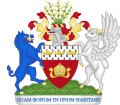Organisation and Duties

The Royal Borough of Kensington and Chelsea Parks Police is part of the Community Safety Department and provides a uniformed body of constables across the twenty-five parks and open spaces in the Royal Borough of Kensington and Chelsea, to detect and deter crime.
Officers
The Parks Police consists of two Sergeants and five and a half Constables. [2]
The two Sergeants report to the RBKC Council Senior Community Safety Officer. [3]
Their specific duties include:
- reporting crime within the parks
- dealing with anti-social behaviour
- detaining offenders
- enforcing bye-laws and the dog control public spaces protection orders
- security at park events
- dog chipping and dog shows
- attending park user group meetings
- crime prevention
- lost property in parks
- truancy patrols. [4]
Applicants considered to be Parks Police Constables are expected to have previous experience as an attested constable (regular officer or Special Constable) with a Home Office force, British Transport Police or the now disbanded Royal Parks Constabulary. [5]




